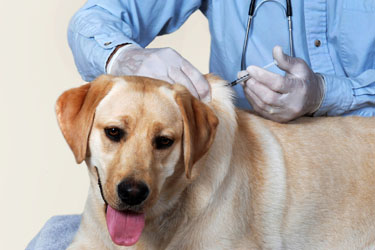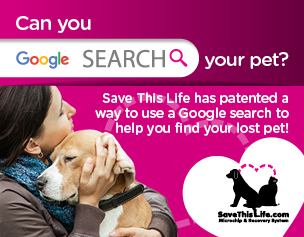Veterinarian Tips: Why Vaccinate?

There is no doubt that a strong attachment exists between most people and their pets. In fact, the social presence of companion animals is more commonly observed than ever before.
Unfortunately, involving pets in activities outside of the home increases their risk for coming into contact with infectious diseases. In order to keep their pet healthy, it is important that clients understand the need for a vaccination regimen.
Why Vaccinate?
Here’s some information to pass on to clients:
Exposure to Disease
Most infectious diseases are species-specific and only a few can cause a contagious infection, but disease pathogens are be found in all environments.
Transmission of disease can occur following contact with an infected animal’s:
- Feces
- Urine
- Mucous
- Bodily Secretions.
Contact with disease pathogens can also occur through:
- Inhaling contaminated air droplets
- Mating
- Spores in the soil that enter the body, either through a cut in the skin or through the respiratory tract.
Immunity to Fight Disease
An animal with immunity to a specific disease has antibodies in its system that work to naturally find and destroy the disease pathogen before it can cause an infection. Clients may not be aware that, without disease immunity, whenever a healthy animal comes in contact with an infected one or with its disease pathogens, there is a risk that the healthy animal will become ill.
Immunity can be established in one of two ways:
#1. Natural Exposure
- Once infected, the animal’s immune system creates natural antibodies, giving it active immunity and further protecting it against the disease
- When active immunity is gained through natural exposure to infection, the immunity often lasts for the animal’s life
#2. Vaccination
- Prior to the animal becoming infected, immunity to the disease can be induced through a vaccination
- The vaccination stimulates the body’s antibody production, which protects by attacking and destroying disease pathogens
- Vaccination-gained immunity has a limited duration, and booster vaccines are usually recommended.
Vaccination Categories
When establishing a plan for preventive care, veterinarians follow recommended guidelines for vaccine use. Their final determination views the needs of the individual animal as different situations require different considerations.
There are two main categories of vaccines, core and non-core.
- Core vaccines are those recommended for use with most pets. Core vaccinations fight animal-to-animal diseases that are often highly infectious and common to the area where the animal lives, for example:
- Feline Panleukopenia (FPV)
- Feline Herpesvirus (FHV)
- Feline Calicivirus (FCV)
- Canine Distemper
- Canine Parvovirus
- Canine Adenovirus
Core vaccines also include those used to fight zoonotic diseases, the infections that are transferable from animal to human, such as rabies
- Non-core vaccines are only recommended for use with certain animals, with consideration often dependent upon vaccination needs based upon the animal’s lifestyle and its geographic location, such as:
- Feline Leukemia Virus
- Bordetella bronchiseptica
- Lyme disease.
Convincing Clients to Vaccinate
After talking with clients, if they are still hesitant to vaccinate, it’s time to remind them of these four final points:
#1. Used correctly, vaccinating prevents many animals, not just your pet, from becoming ill.
#2. Vaccinating not only prevents diseases from being passed from animal to animal, but from animal to human also.
#3. Young animals are at a higher risk of becoming ill when exposed to disease pathogens if their immune systems have not yet had time to mature. Following the vaccine regimen identified for kittens and puppies will help to jumpstart the animal’s immune system so they produce the antibodies needed to fight disease.
#4. It is more expensive to treat an animal that has become ill with a disease than it is to vaccinate the animal to prevent the disease.
The successful reduction of animal diseases is largely due to following established vaccination guidelines. Talk to clients about why veterinarians recommend vaccinating as a way to protect against disease.
Contact your Covetrus representative for additional information to pass on to your clients at: 855.724.3461.


Working Here
Our team members are encouraged to be the best they can be... at Covetrus we believe we impact one another.
Learn MoreNews & Events
FDA Cautions Pet Owners Not to Feed Texas Tripe Inc. Raw Pet Food Due to Salmonella, Listeria Monocytogenes
The U.S. Food and Drug Administration is cautioning pet owners not to feed their pets any of the Texas Tripe brand raw frozen pet food listed below because several samples of Texas Tripe raw pet food have tested positive for Salmonella and/or L. mono.
Careers
Are you looking for a place to let your talents shine? At Covetrus, we help our practitioner customers better serve their patients and take pride in providing the best customer experience possible. Search our open positions to see our available opportunities.
Newsletter
Stay current with what’s going on with Covetrus, subscribe to receive our newsletter and email communications. Subscribers will receive the latest information in practice management, sales and marketing, animal health, and more.



-3-(1).png?sfvrsn=2d806d73_0)

Leave a comment